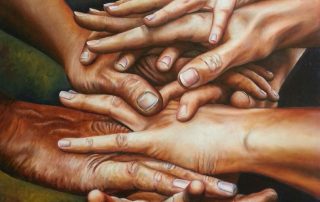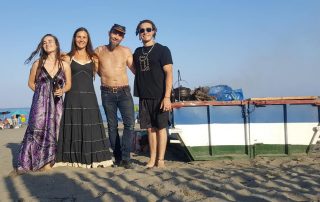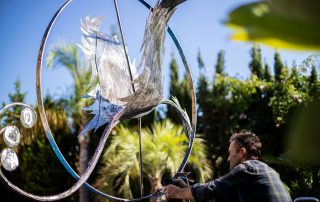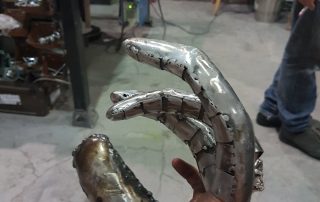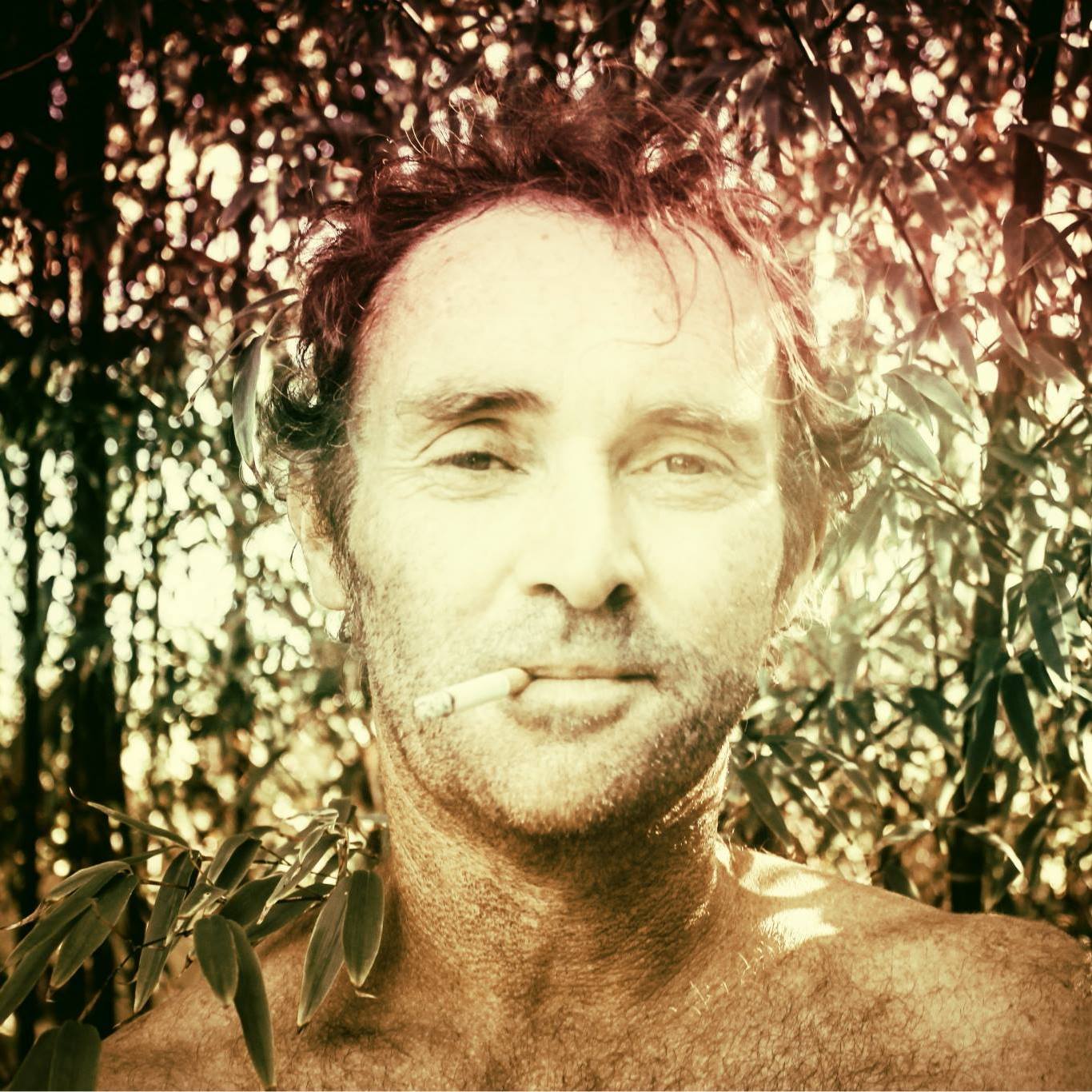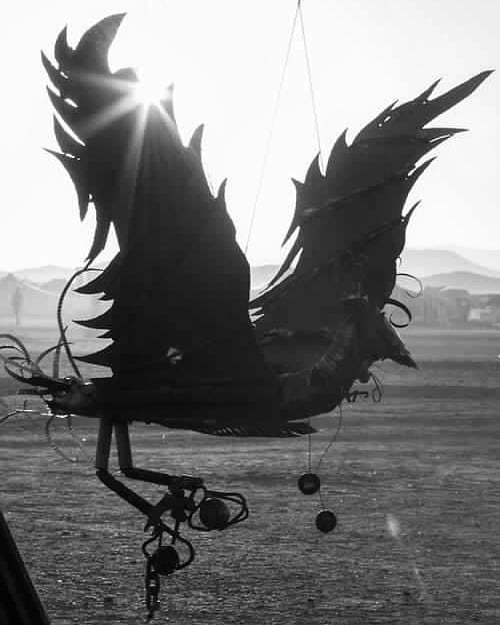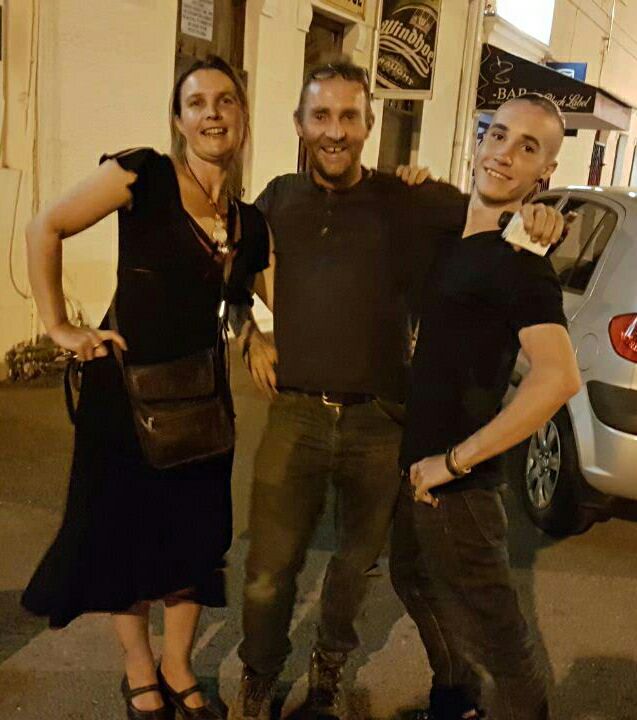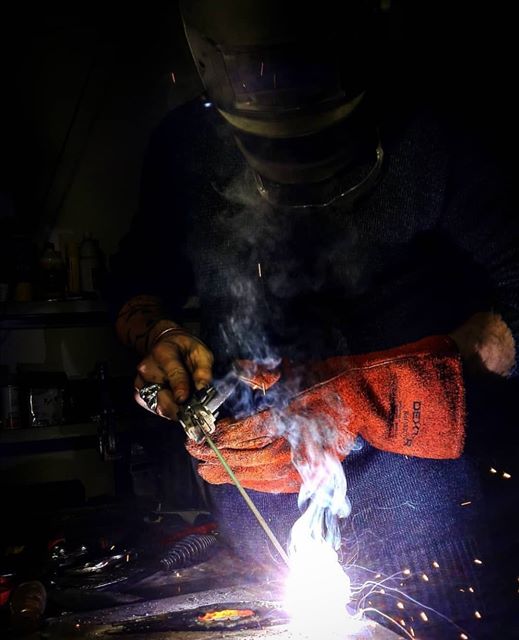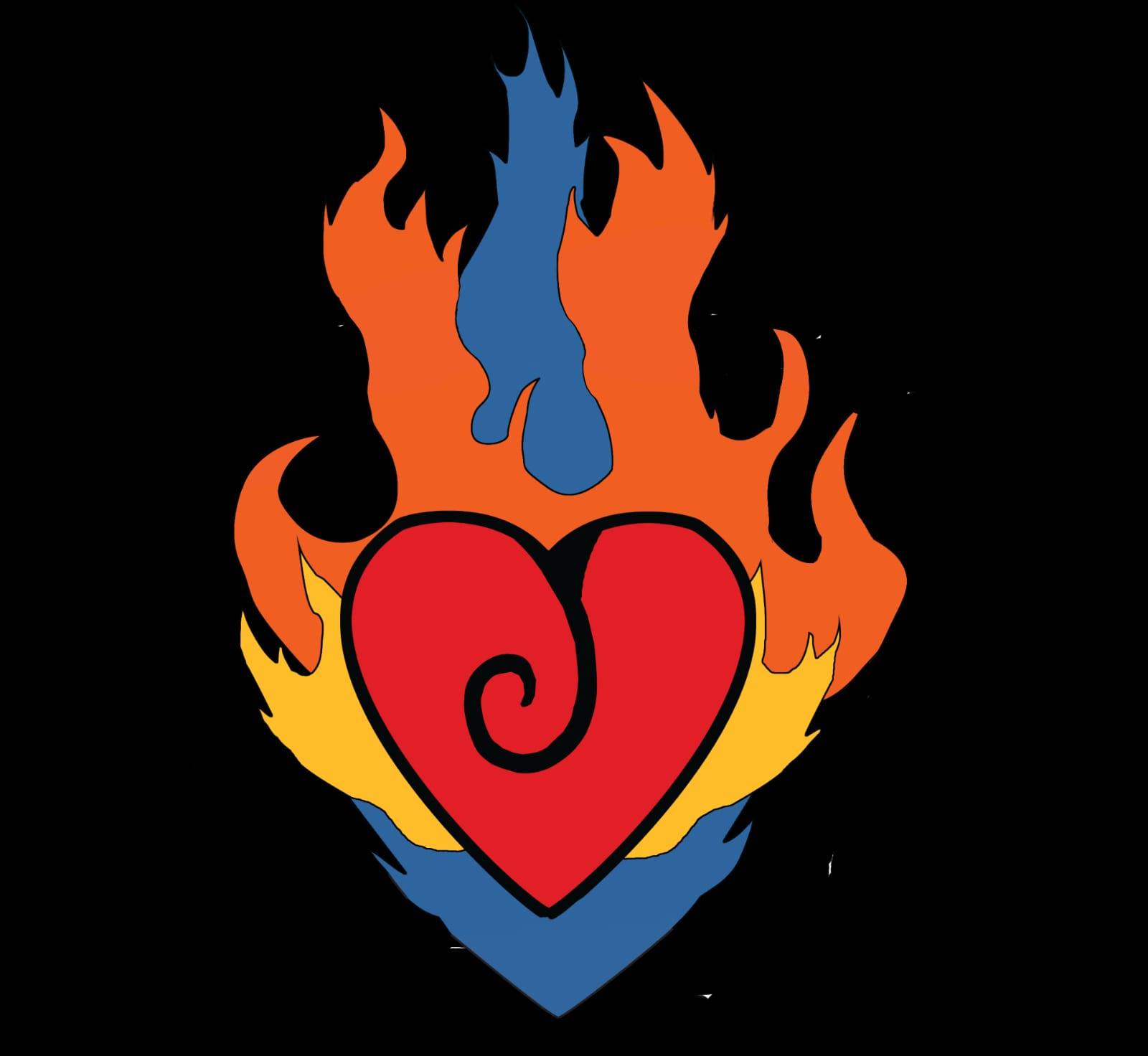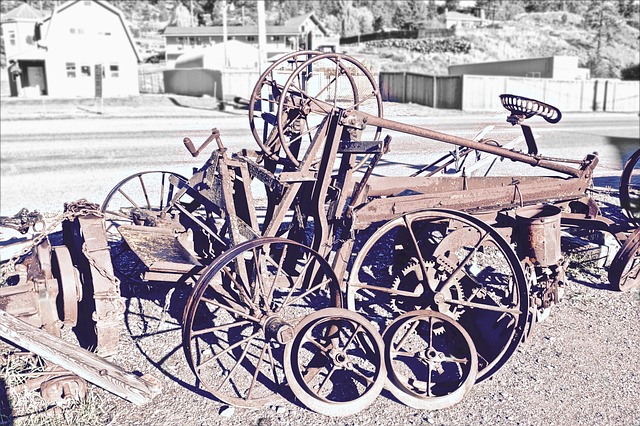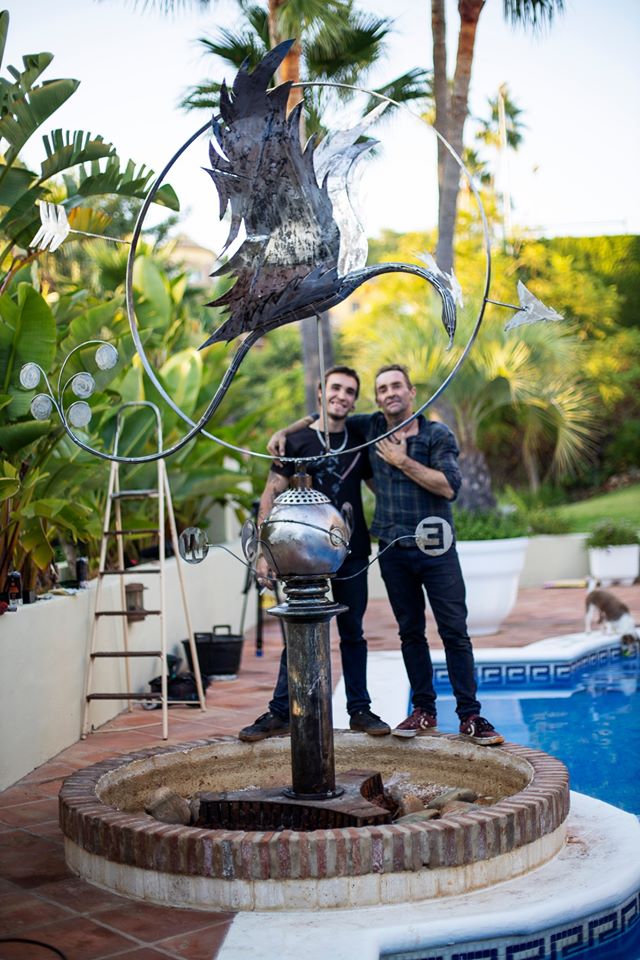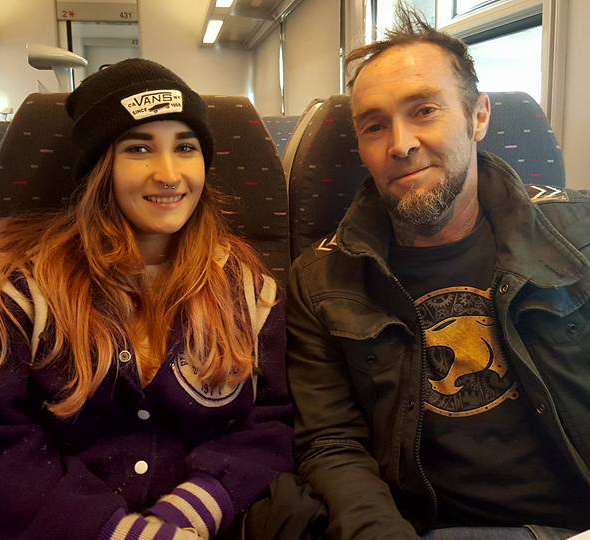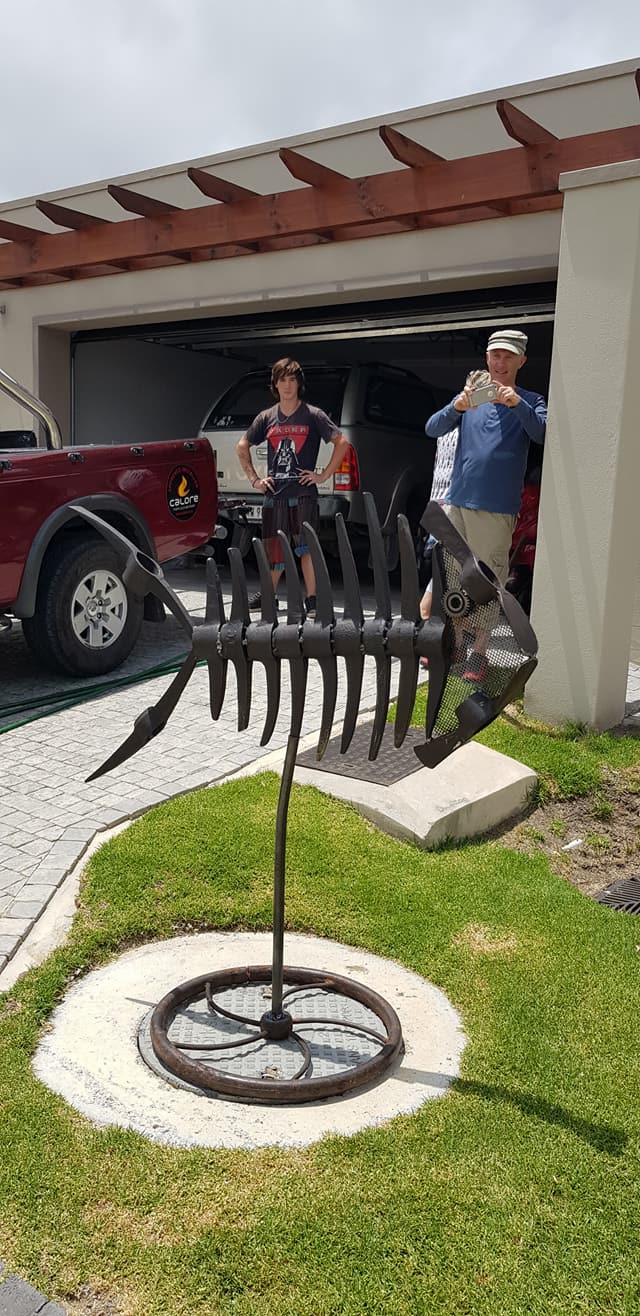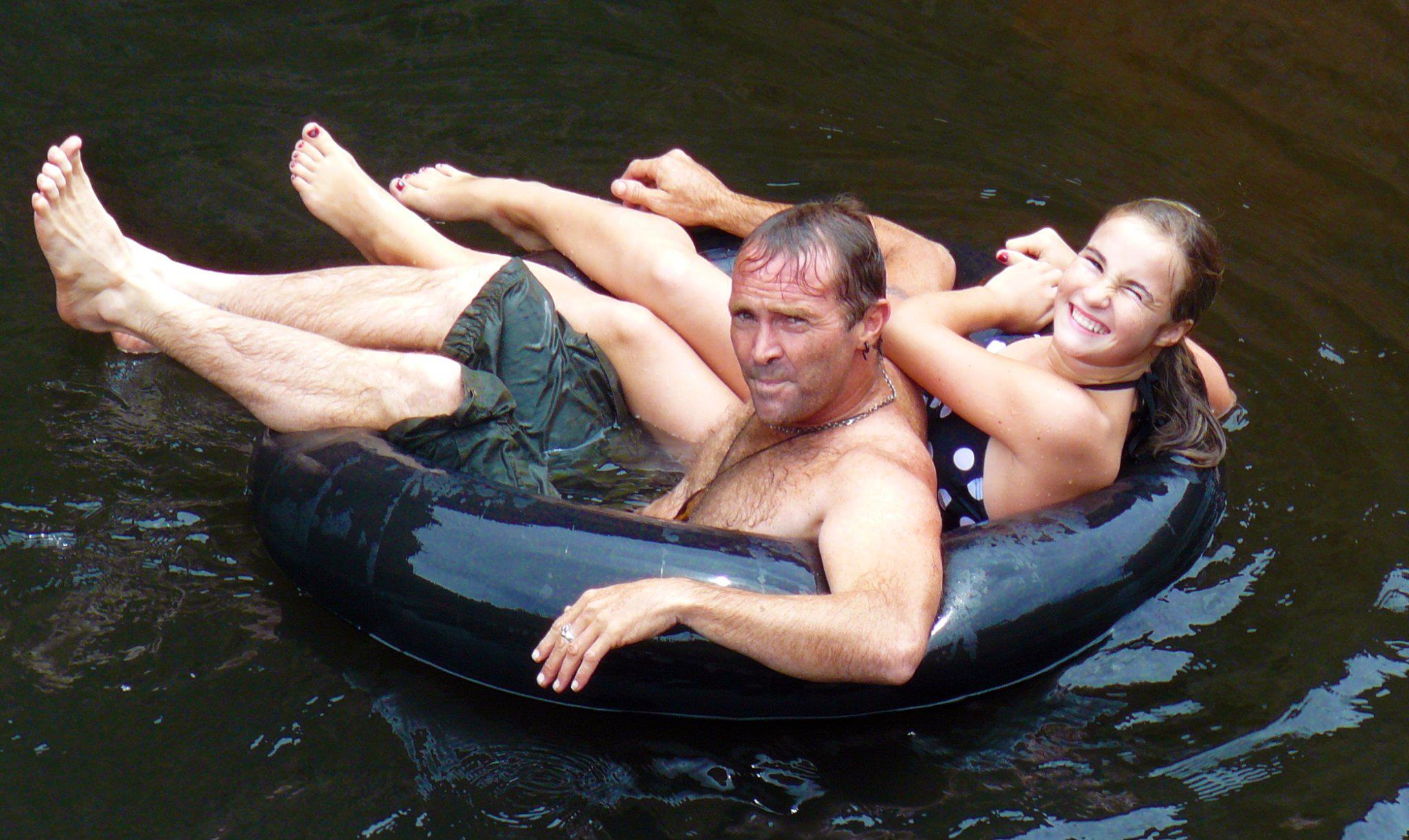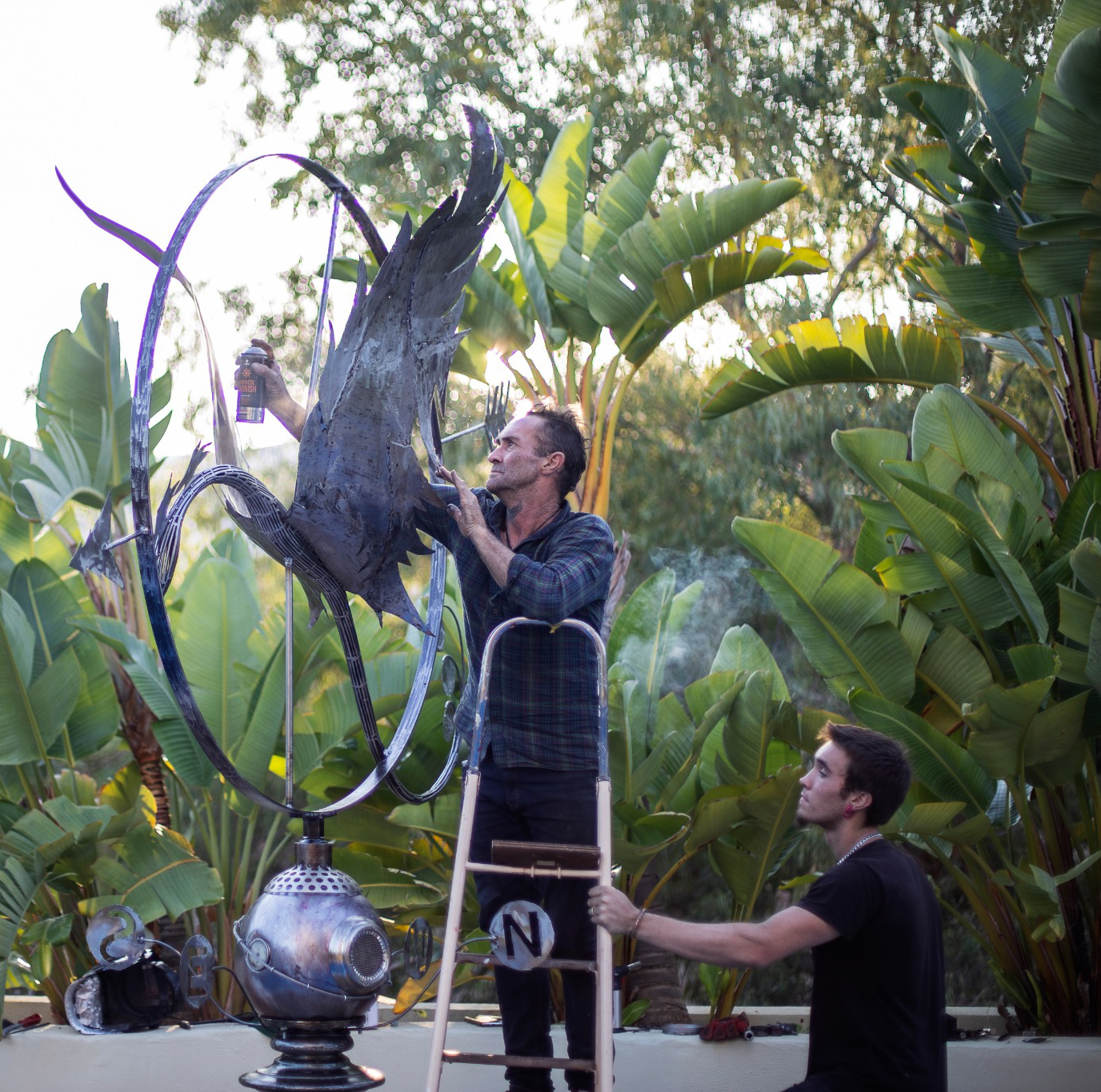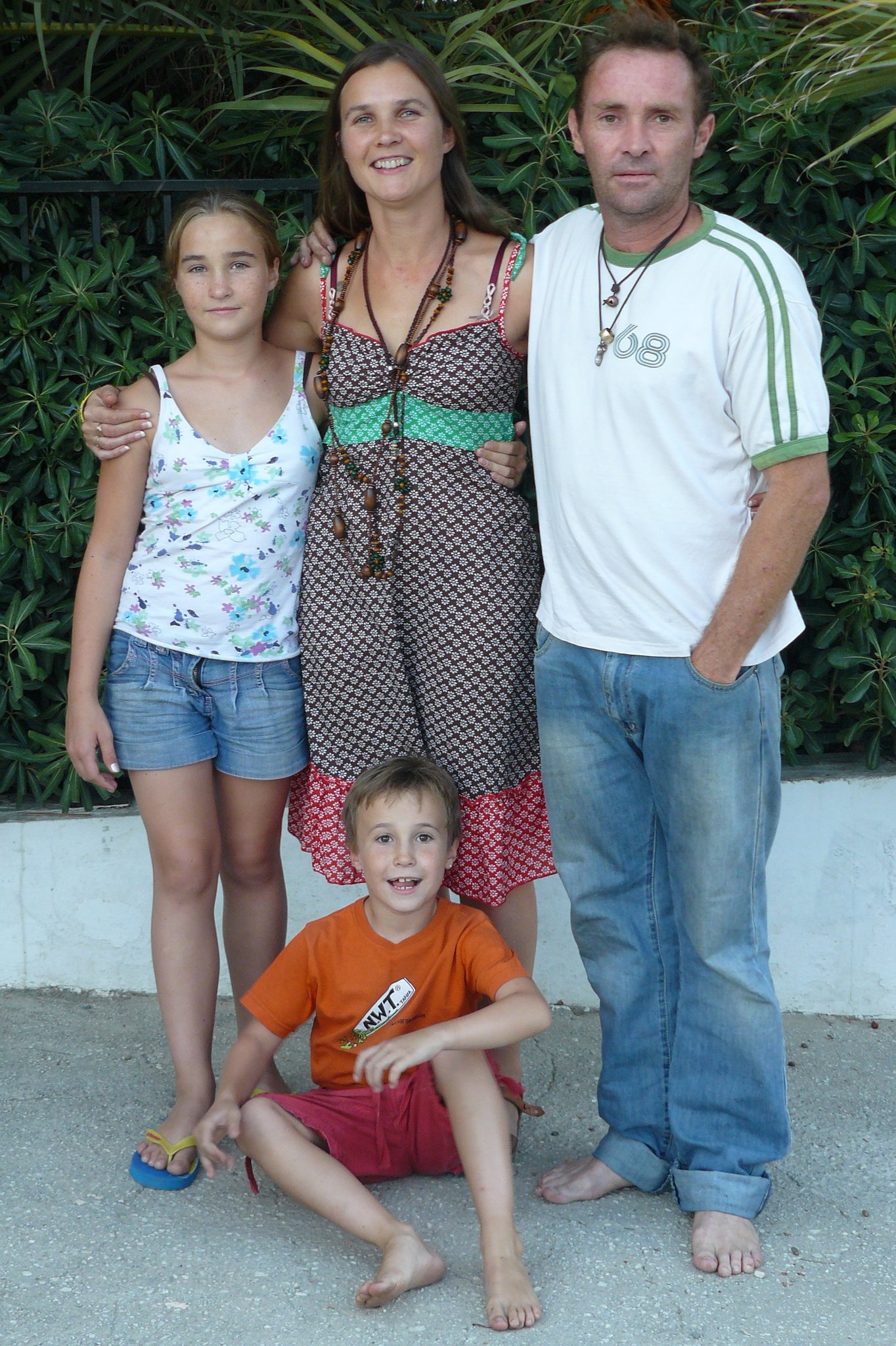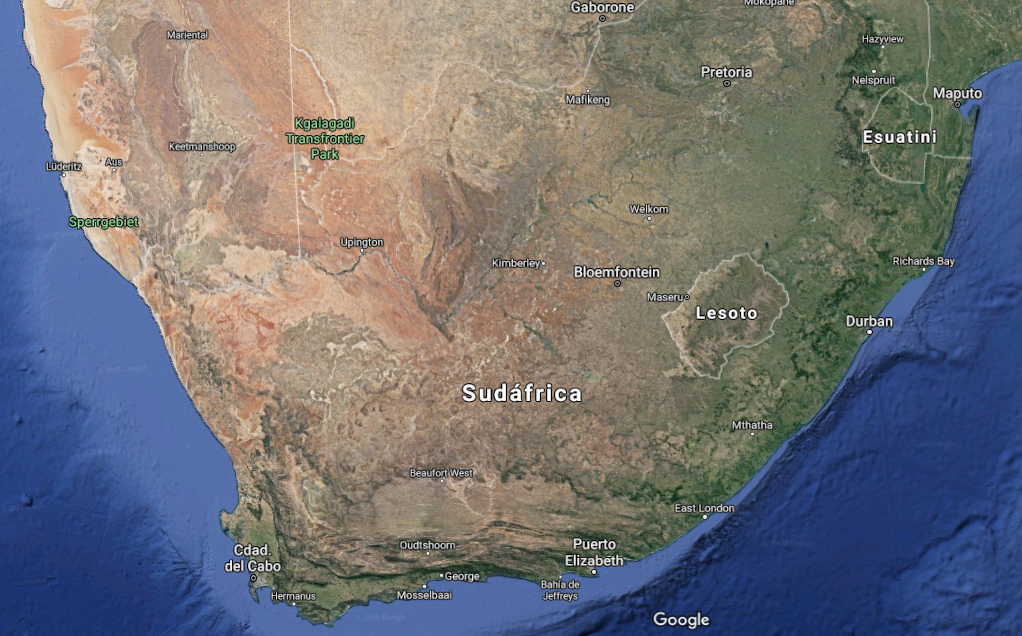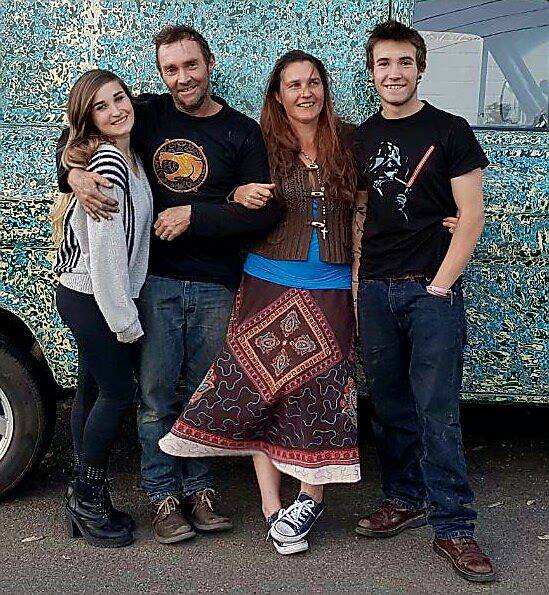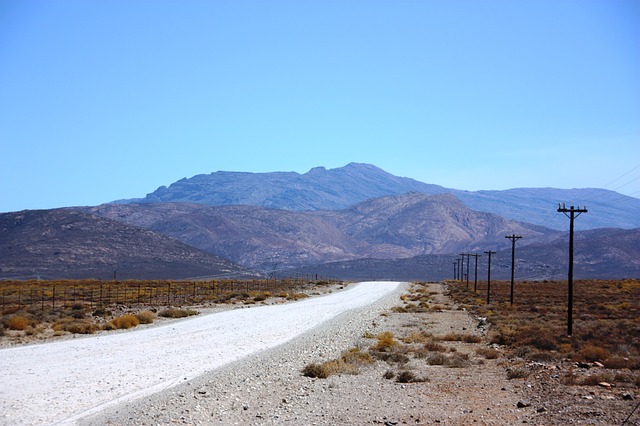How did you get to Estepona?
First we flew from South Africa to the Netherlands and then we bought a car and drove all the way down to this town.
What made it that you picked Estepona?
I liked the streets, it was cleaner and more open then the other towns. The other towns around Marbella feel more like townships, like an ad on. Estepona got it’s borders and has a good feeling. I just thought it might be a nice place to live.
Why Andalusia and not any other part of Spain?
There are more foreigners here, there is more work to start with and more variety as far as foreigners concerned. It always helps when there is variety. It does bring open mindedness in a certain way.
Do you speak Spanish?
A little bit, enough to get by, I just learned by talking with people. The hard way.
You are a plumber, did you follow a study in that direction?
Yes, after two years in the military I did an apprenticeship of five years in South Africa. In my apprenticeship years I found the plumbing boring, because you’re just learning and not doing anything, you can’t touch anything because you just have to constantly learn. It got quite frustrating. I am very creative and I want to make things. I started shoe making without any learning from anybody.
How did you learn to make shoes without any knowledge?
God gave me wisdom, because I asked. There were no books about it. I searched and found second hand shoe equipment from a company. We didn’t have internet then. I went to the big library in the capital Pretoria and I couldn’t find a single book about shoe making. It was just learning by trial and error. Eventually I wrote a book about shoemaking, so that other people wouldn’t have to go through the same pain to reinvent the wheel as I went. Because there is an incredibly amount of losses while learning. What type of leather stretches, the rubber, the glue, the types of stitching and tools . I just learned, getting some information here and there. and I published that in 1992. And I sold all these books in the leather shops, hobby shops in Pretoria, just around the area where I lived in. I think I’ve made life easy by making this book, it was not expensive, I just copied it and bound it myself and then people reordered them…
Did you also sell a lot of shoes?
Yes, a lot! I opened a shop in Pretoria and I taught people shoemaking there and I started a studio to train individual people, students to have another career.
Where did you live in South Africa?
In Pretoria, in Port Elizabeth, Durban, in Transkei homeland amongst the Xhosas, in Kwandebele the homeland of the Ndebeles, I was doing mission work, I was asked to teach people making shoes.
What made you move from South Africa?
The crime basically, we didn’t feel welcome anymore. It doesn’t matter what you’ve done, helping others. You are being made responsible for everybody’s pain and suffering, even if what you did was just the opposite. Being blamed for other people’s poverty really makes me upset. If I had done nothing for people I could understand, but we sacrificed a lot to help people, we could also just have stayed in the city and have a good time… But I wanted to go and help people. So, we thought it would be time to go, it was getting sour and dangerous. People won’t remember the good that we did, they will only find every little thing that we’ve not done. You get used to live in danger, but I don’t want to get used to sleep with one eye open.
I guess you chose for your life?
Yes, I wanted to leave earlier, before you’d have to give everything up and run. But I see potential in Estepona and along the coast here. It’s the local people who just have to realize that bringing new people is good for the economy and that sharing ideas is healthy. In the old South Africa first the white people made the rules, now it’s just the black people making the rules, there was and is never any balance, you know. As a foreigner, what do you have to give? What can you say? We don’t want to listen to you, because you’re a foreigner. They should realize that it might spice things up. It’s good for a place. We all have something to give. They should be more open towards foreigners apart from them offloading money, because they might learn something, like we learn from them. Otherwise we remain the same and a little poorer mentally. That’s just how I feel. I think when you have gone through a lot in life, you see how quickly things can get stale and boring, by stupid thinking. By thinking in a tunnel vision. I’ve seen pain and poverty coming out of that.
Your brother also left South Africa, for the same reason?
Yes, he moved to Holland for the same reason, we saw it getting worse and worse. Now people are leaving more and more. They are considering just to lock their houses and leave, they’re struggling selling their properties and there’s a move from government to take the properties without compensation.
Do you miss South Africa?
Yes, terribly, I would go back tomorrow if there is a change of hearts. I miss the country and the people, I hate the abuse, the lies of the politicians, only busy with their own agenda. I think most South Africans hate it.
So you all agreed on leaving?
Yes, I guess it was most difficult for my wife Samantha, because she doesn’t like changes, Jazmynne, our daughter, was very easy and our son Dane had to leave a few good friends. At that time we lived in Karoo, we all met such nice people there.
What’s so special about Karoo?
Karoo is the place famous for the biggest ostrich export in the world. I think this is the most beautiful place I’ve ever lived in my life and where I met the best friends. I miss that so much. I would love to go back. There are like 5 roads going into the town in the middle of the Karoo, big mountains. You never feel claustrophobic or caught, you just have a beautiful space. It’s 50 km from the coast, so I could go spearfishing. But it got dangerous around there too. There is a lot of drugs criminality and theft there. It’s almost normal, ‘You’re white, so you must have something…’ Every day you get about 5 or 6 knocks on your door for food. So I always bought extra tins of fish, bread, so we could give something. Every day you give, but you can’t give a lot, because there will also be others. And there are many children without fathers, mothers with 8 to 10 children without food… People make bad decisions…
Did you sleep at night with all these problems around you?
Yeah, we used to have this deal that me and Dane slept after work and Jazmynne stayed awake and in the morning she went to bed. Samantha wasn’t worried at all, she is an artist, with her head in the clouds. But living like that sucks. You never know when you are safe. We got robbed three times in one week. They stole all our bicycles, all my tools, so I couldn’t work… So we left and we decided to make a plan along the way. We gave up a lot. I was doing well in business, I will never do this kind of business here as I did there, so I didn’t leave to make money, that’s for sure, my bank account proves that much.
I know that making shoes and plumbing are not your only skills, you also make objects, right?
Yes, I started making sculptures when I did mission work in Kwandebele, I was teaching people making shoes, belts and bags. In between I would go and weld things and make things, there was a lot of scrap metal laying around there. Just to be creative. As soon as I conquered something I get bored. I need something new, a new project, a book to write. I love challenges. Sometimes I have to apologize to my wife and kids, this week again, I take so many chances. I am so into doing new things. I want to move mountains. That’s my problem.
What did you dream when you were like 7 years old, what would you like to do in the future?
I wanted to look after people, that was my dream. Weird. I was always imagining taking in strangers and take care of them and feed them, getting clothes for them. And then my family said I should become a priest and then I stopped immediately. When I was in boarding school I had already discovered that religious people had no compassion in their heart, just law.
So you went to boarding school?
Yes, since I was five years old. That was tough, a month without my mother… Staying in the middle of nowhere, a school in the countryside. But you’re five years old, you don’t know any better. There is no comparison. It used to be normal to go to boarding school in those days, because it was for free. So parents could work. We didn’t have a father, so it was easy for my mother, you know. My brother also went to this boarding school, he is two years older than me. My brother didn’t manage so well, because he was already noticing things, because of his age, that something wasn’t right. For me it was just another challenge, surviving it.
Because your father…?
My father separated from my mother when she was pregnant with me. I only saw him 3 times. Once he kidnapped us when we were about 6 years old and the last time he wanted to take us to the church and I said, ’Okay, cool!’ So my mum got us all dressed up. And then he said, ’I’ll come back now, I’m just going quickly to see a friend.’ And basically that was that, he never came back. He never returned, we are still dressed, we are still waiting for him. I have peace with him, I had to forgive him. That’s why I wanted to do it much better then him. Made the decision to be the best father I can…
How did you meet Samantha?
When I had the shoe shop in Sunnyside, she was passing by, I was teaching and then I saw her talking to one of my friends. I just greeted her and later I saw her again in a club and that’s where it started. Samantha made clothes at that time and she asked if she could hang some clothes in my shop and when I agreed she walked in and took over. That was it. Our love was growing. Growing lasts longer…, although there is no recipe for love, we are 26 years together now. We are good for each other, we have to learn something from each other. And set each other straight a bit, you know, like, ‘You’re flying too high now!’ or ‘you’re underestimating yourself’, stuff like that. If I look at my kids I always think, ’What a good decision!’ BANG!! That was a good combo!
You’re a happy family, right?
Yes, my kids could have been sleeping everywhere, at friend houses, but I wanted to keep them close. We were just sent around, to boarding schools, I wanted to make a difference.
Your kids are now 23 and 18 years old and you all still live together?
Yes, I want them to stay with us for as long as they possibly can. I don’t hold them back, I want them to experience. If they have problems I want them always to talk to us. I don’t want them to suffer in silence. They should be thinking that they can talk about anything, I’m here for them.
What do you like in Estepona?
Some of the people we’ve met. Some are really cool. I’m not one for tapas bars and that you know. I’m not into glitter and glamour, I’m not wired that way, I’ve seen too much. I’ve seen too much reality in my life to be sold a dream that is not real, you know. The Mediterranean Sea is dead, it’s empty. I can’t go spearfishing here and also the sewage goes into the sea. I’m not impressed with the nature either. If you throw rubbish next to the road you should get fined . Over here if you drive in the mountains, you’ll find rubbish everywhere, people throw tiles here, cement there. There is no necessity for pride in the countryside here, it’s weird! So strange. Probably it’s just this area, maybe this is not happening in the North… I love the streets if you drive into Estepona, it’s beautiful from both directions, the trees and the beautiful flowers they’ve put in the streets. They do love to make it look pretty. On the surface it’s very pretty. They are trying very hard to make the town pretty and I respect that.
Do you do a lot of plumbing work in Estepona and surroundings?
Yes a lot. Obviously there’s not many qualified plumbers here, because plumbing is not a qualification in Spain, you just ‘do’ plumbing. You don’t do an apprenticeship from an old plumber, there are no real rules. As long as it looks beautiful… it doesn’t have to work all that perfect.
How do you find your customers?
I just advertised in the beginning and also got a lot of work through word of mouth. It just grew from there. And companies who couldn’t find somebody local, were paying for really specialized work and then they found out about me and I could solve some of their problems. I like the Scandinavian clients, Irish and German people, they don’t hassle with the price as long as it’s quality. They just pay for quality work. But there are people that don’t like to pay for quality plumbing, they like to push the price down and take the inspiration out of your heart for your trade.
And you work together with your son Dane?
Yes, mostly he’s learning plumbing from me. I went into heating in South Africa, fireplaces and central heatings, so that’s where he started with me. But since we’ve come here we haven’t done much on the heating as the South doesn’t get that cold , I also wrote a manual on heating: fireplaces, oxygen, types of installations, types of materials. So basically the rules and guidelines for hydronic systems and fireplaces. I became a qualified gas technician in 2006 in Cape Town, South Africa, after some courses. But this qualification I can’t use here. I would have to redo everything. So it would not be legal. But I can fix gas installations. Nobody can stop anybody for making someones house safe…
Again about your art and sculptures, you’ve recently made this woman out of iron and that moving object…
Ah yes, the big Phoenix, me and Dane worked on those. Most of the stuff we do together. Dane has got patience and I have got the ideas. Good combination. Maybe age takes away the patience… It all depends on paying the bill. If you need the money you loose the patience. Because you have to get it done. So you rush. But Dane is my last apprentice. You have to start from scratch, you have to teach someone everything again. He can now teach everyone what I teach him. I’m tired of teaching, I had to pay the price of what I know. He learned to appreciate it. He knows what it takes to get knowledge through the stories I told him. He knows my life’s story, that’s why… and I’m really grateful that he was willing to learn from me.
How do you come up with the concepts for your sculptures?
They just come in my head, I combine metal, cement, casting, leather, I go to the scrapyard and then I buy the things that look like they have potential, old stuff, something odd looking. It is often very easy in the head, and then you start putting that together and you have to just let it do it’s own thing. Sometimes it’s a struggle. I just made a woman, that was really difficult. The way we are created is so beautiful. It’s a struggle for men and women to understand each other, but it’s nice to explore it. I like the female form. The shoulders, the hips, the neck, then you start noticing what’s the attraction, it’s not obvious, there’s also sweetness. I’m glad I made the female sculpture, because now I appreciate it more. I would like to do some more casting and use old electronic stuff, I like to make moveable art, art in motion. Kenetic art. Wind blowing the fan and the fan’s got a gear and gas torch that blows and creates colors. I like to go big on things like that.
Now you have the space for your own gallery right, in Estepona industrial park?
Yes, I don’t know if it will work over here. Maybe it would be better on the coast in Marbella, but people can come here, have a cup of coffee and have a look or order something. We can make suggestions. Fireheart studio is the name of our studio, that’s all of us. I would love to set up a workshop, a proper place, where people can learn, you know, a place where they can experiment with tools, to help people think out of the box. I don’t want to teach people a trade, but I want to remind them that they have such great abilities. They limit themselves too much.
You are also writing a book, right?
Yes, I’m on page 140. Actually, I don’t want to carry on writing, I have to make video’s. It’s more personal when they see you, vlogs. It would work better. I’m not a great reader, so not a good writer either. I don’t know where to put commas, I just ramble on, you know?
Anyway I started to write the book to try to ease the pain, the situation in South African and how I find myself as a white person and the life I lived. The separation with the colors of the people. And the point of people saying that we are privileged as white people and I would like to point out, ‘No we are not really’. I hardly ever felt privileged in my life being the person that I am. I’m just trying to bring a bit of balance, that people are not only seeing one side. I’m not trying to bring conflict, I’m trying to bring peace. It’s called The long walk through racism, because Mandela wrote the book The long walk to freedom. It also points out the negative things the white people did, but you’re not looking at a population, you’re looking at a government. Looking at a few who wanted that type of lifestyle for their own benefit. Not everybody benefits from that, most of us suffered because of that decision. Not everybody was happy with the way it was. It’s like now: nobody is happy with wearing masks. But we don’t have authority. Other people make the decision. So that’s the example… What could we do against this government? When we voted 68% of the people voted for equality of the black people. In South Africa you got beaten up if your hair was too long by the police. White people beating up white people and whoever’s close enough and don’t toe the line. What a shit system.

